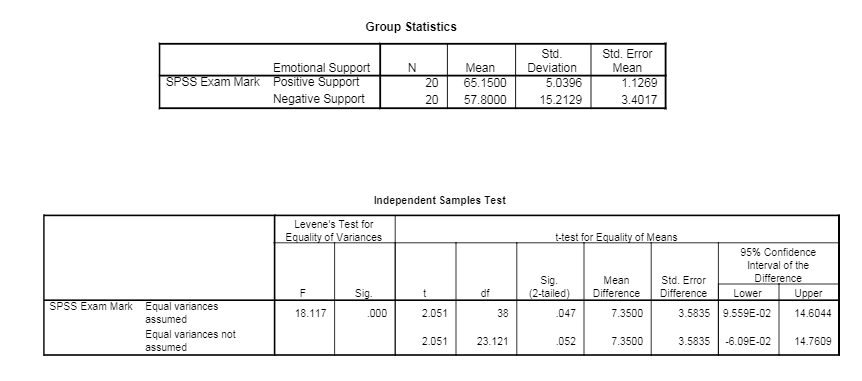A researcher was interested in the effects of emotion-evoking music on exam performance. Before their SPSS exam, a lecturer took one group of students to a room in which calming music was being played. A different group of students were taken to another room in which the 'death march' was being played. The students then did the exam and their marks were noted. The SPSS output is below. The experimenter made no predictions about which form of support would produce the best exam performance. What should he report? 
A) Students receiving positive music before the exam did significantly better than those receiving negative music, t(38) = 2.05, p < .05.
B) Marks for students receiving positive music before the exam did not significantly differ from students receiving negative music, t(38) = 2.05, ns.
C) Students receiving positive music before the exam did significantly better than those receiving negative music, t(23.12) = 2.05, p < .05, one-tailed.
D) Marks for students receiving positive music before the exam did not significantly differ from students receiving negative music, t(23.12) = 2.05, ns.
Correct Answer:
Verified
Q6: From the table below, did the independent
Q7: An dependent t-test is used to test
Q7: The t-test can be characterized as a
Q8: When using the independent t-test which assumption(s)
Q9: A psychologist was interested in whether there
Q10: Participants take a simulated driving test twice.
Q12: The t-test tests for
A) Differences between means.
B)
Q13: Which of the following is not a
Q14: What does the error bar on an
Q16: Which of the following is an independent-measures
Unlock this Answer For Free Now!
View this answer and more for free by performing one of the following actions

Scan the QR code to install the App and get 2 free unlocks

Unlock quizzes for free by uploading documents